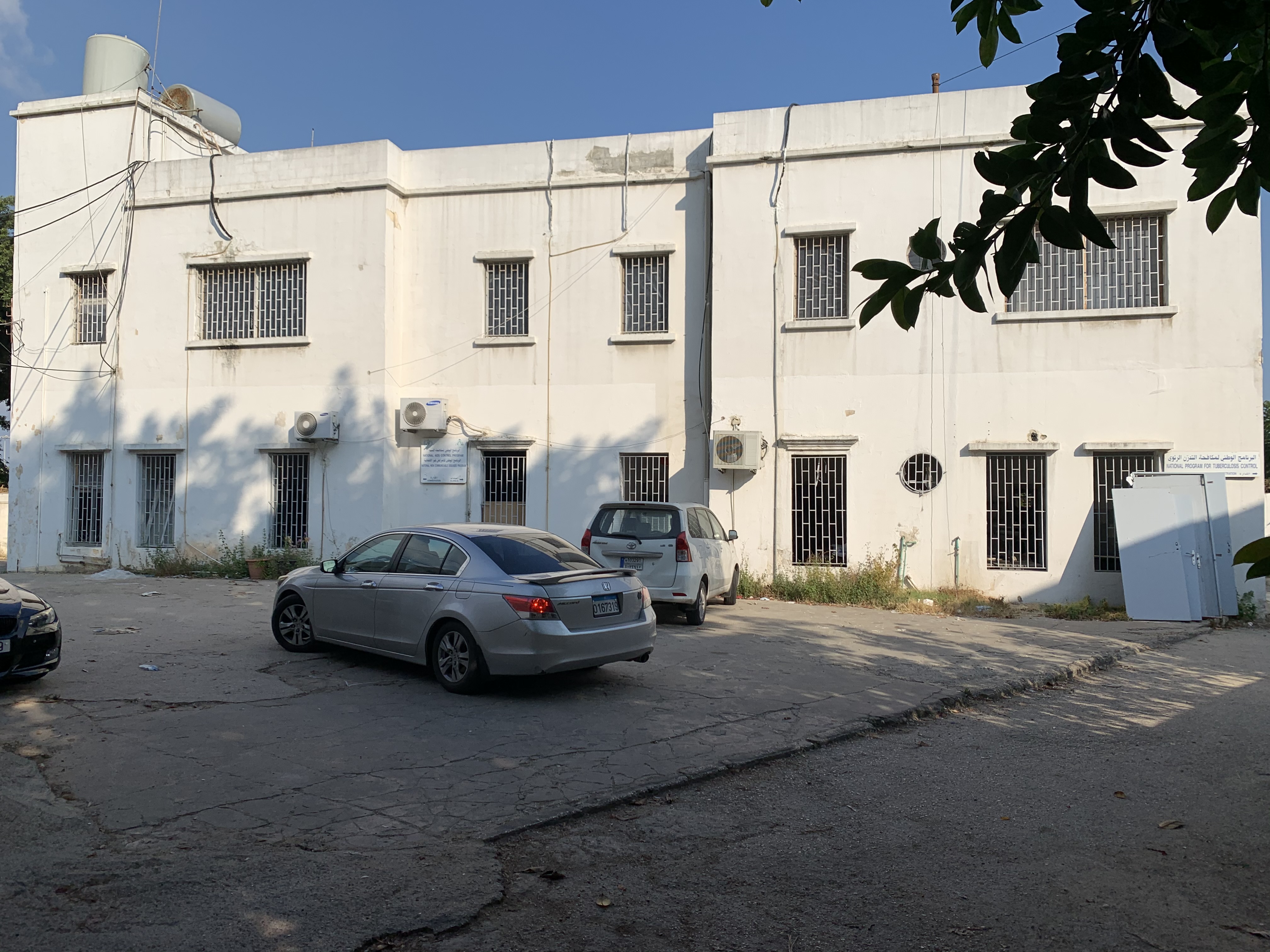Beirut, Lebanon, October 2021 – To support the only National HIV and Tuberculosis (TB) Centre in Lebanon restart its operations after it was severely damaged by the Beirut Port explosion, UN-Habitat rehabilitated the Centre inside and out ensuring it regains structural stability, is easily accessible to the public and uses renewable energy so it does not rely on the national power grid.
Prolonged fuel and electricity shortages in Lebanon have made it nearly impossible for businesses, medical facilities, restaurants, and supermarkets to operate and provide goods and services at an adequate standard or even at all. UNICEF stated that nearly 71 per cent of Lebanon’s population risks losing access to clean and safe water by the end of the summer due to the lack of electricity. Medical facilities in particular have been heavily hit, as most lifesaving medical equipment require electricity to function and the shortage of medication in the country have only made attending and treating patients even more difficult. All of these challenges have only exacerbated the aftereffects of the Beirut Port explosion.
The Centre, only one kilometre away from the epicentre of the devastating 4 August 2020 Beirut Port explosion, was badly damaged and needed infrastructural renovation.

In addition to fully rehabilitation the Centre, the installation of solar panels enabled its operations to shift to using renewable energy which allows it to continue providing much needed services and treatment to patients and those seeking diagnostics and care. In the Centre, 13 employees, including doctors and pharmacists, provide services to at least 900 patients each month.
The project is part of UN-Habitat’s continued commitment in Lebanon and other countries worldwide to provide solutions to help cities recover from urban crises, while building resiliency and reducing carbon emissions.
In addition to equipping the Centre with solar panels, the UN-Habitat implemented project provided a server to the Centre to facilitate the digitization of patients’ confidential records and is rehabilitating the street and pedestrian sidewalks in the surrounding area leading to the Centre.
“UN-Habitat’s engagement in the Beirut Port explosion response and recovery efforts have spanned various sectors including rehabilitation of homes, private schools and medical facilities; rubble and debris management; and cash-for-shelter assistance. All activities seek to complement one another and have proven that an intersectoral and holistic approach is vital to Beirut’s recovery from crises, such as the Beirut Port explosion,” said Taina Christiansen, UN-Habitat Lebanon’s Head of Country Programme.
While most residential and commercial buildings in Lebanon now rely on private generators for electricity supply, the National HIV and TB Centre is only the second medical facility in the capital to use solar panels to produce renewable energy. The system used at the Centre is known as “on-grid” power generation system, meaning the panels are connected to the main power grid in the country and the existing generator. That, in turn, reduces the amount of fuel needed for the generator – and the cost – and can send excess power generated to the utility grid when overproducing.
While much of Lebanon has lacked all-day power supply from the national grid – pre-dating the current crisis – the current situation has become particularly acute in recent months due to fuel shortages that have caused major power plants to grind to halt and private generators with inadequate amounts of fuel to provide power 24/7, this has left most homes receiving only a couple of hours of electricity each day.
The rehabilitation of the National HIV and TB Centre in Karantina, Beirut, funded by the Swedish International Development Cooperation Agency, known as Sida, allows the Centre to operate fully and preserve medications and vaccines that require constant climatisation, and saves the Centre USD 1,000 each month.
While most residential and commercial buildings in Lebanon now rely on private generators for electricity supply, the National HIV and TB Centre is only the second medical facility in the capital to use solar panels to produce renewable energy. The system used at the Centre is known as “on-grid” power generation system, meaning the panels are connected to the main power grid in the country and the existing generator. That, in turn, reduces the amount of fuel needed for the generator – and the cost – and can send excess power generated to the utility grid when overproducing. The system was installed as per the highest quality and safety standards guaranteed through a collaboration with the Lebanese Center for Energy Conservation that supported UN-Habitat in setting its technical specifications while exchanging knowledge that can be capitalized on in future projects.